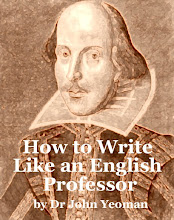 g been a topic of scholarly conjecture. We might equally ask: did the Elizabethan Dr John Dee light upon the secret too? Or the alchemist Richard Ingalese in the early 20th century? Both were on the quest for immortality and both vanished mysteriously in 1609 and the 1930s, respectively. We have no record of their deaths or places of burial.
g been a topic of scholarly conjecture. We might equally ask: did the Elizabethan Dr John Dee light upon the secret too? Or the alchemist Richard Ingalese in the early 20th century? Both were on the quest for immortality and both vanished mysteriously in 1609 and the 1930s, respectively. We have no record of their deaths or places of burial.That fact alone is enough to convince fabulists that both men are alive today. (Ingalese explicitly stated: 'I know of one alchemist more than 600 years old, and one whose age is more than 400, and another whose age is 200, and all of these look and function as do men in the prime of life at about 40 years.") Perhaps, then, Dee and Ingalese are still among us, heavily disguised as Peter Ackroyd and A.S. Byatt? How else could such novelists have acquired their polymathic knowledge of their respective periods if they had not lived in them?
To return to the question: did Roger Bacon discover the secret of eternal life?
Very possibly.
We know that Bacon had sent his first three books on the Philosopher's Stone – his Opus Minus, Tertium, and part of the Maius - in the year 1265 to Pope Clement IV, at the Pope’s command. Bacon dispatched them from his house in Paris to the Vatican by separate carriers, and encoded for safety.
Yet Clement died in 1268 before Bacon could send the last of his Maius which were, some say, its most crucial chapter. (See Thorndike, Lynn, 1916, ‘The True Roger Bacon’, I, The American Historical Review, Vol. 21, No. 2. (Jan., 1916), pp. 237-257.)
There is no mystery about the composition of the formula. Bacon published it openly and Dr John Dee reproduced it in a pamphlet, published fifty years after Dee's death (?) in 1659: ‘Friar Bacon, his Discovery of the Miracles of Art, Nature, and Magick/Faithfully translated out of Dr [John] Dee’s own Copy by T.M.’
But we must remember that the good friar was a humorist. He created an omnisicent speaking head of brass. (It is immortalised in the name 'Brasenose College' at Oxford.) When nobody asked the wretched golem a question, it exploded in a fit of petulance.
Bacon's Philosopher's Egg is likewise a joke. When decoded, it proves to be no more than a recipe for making gunpowder.
So what did Bacon send to the Pope? Not a formula for gunpowder, we can be sure.
Of course, the answer might lie just twenty yards from me at this moment, in the garden of the Yeoman Institute. If we are to believe Hippo (I do), it is some three foot below the rose bush where he buried his decryption of Bacon's book in 1625. I could dig it up in thirty minutes. Should I?
No. It might kill
 the rose bush. And as a gardener, I value a rose bush attestedly four centuries old a good deal more than I do some will o' the wisp fable of immortality.
the rose bush. And as a gardener, I value a rose bush attestedly four centuries old a good deal more than I do some will o' the wisp fable of immortality.And who needs eternal life? Did I have it, I might (perish the thought) end up writing like Peter Ackroyd or A.S. Byatt.

Ho! So Dee and Ingalese are still alive, because we don't know how or when they died? Isn't that a bit 'post hoc propter hoc'?
ReplyDeleteYou might as well argue that Ambrose Bierce still lives among us because he vanished in Mexico in 1914. In fact, his relics are probably buried beneath some modern car park in Chihuahua, adjacent to the site of a 19th century tavern. (Perhaps a Mexican critic took radical exception to his sense of humour?)
This comment has been removed by the author.
ReplyDeleteNo. Bierce is still alive. He met Ingalese in 1913 and traded a pot of peyote for the secret of immortality. Bierce's name is now John Yeoman. But whatever happened to his 'sense of humour'?
ReplyDeleteFergal, I thought I had banished you from making unmediated comments in this forum?
ReplyDeleteHo, I hacked into your Permissions settings.
ReplyDeleteBesides, if Ambrose Bierce were alive today, he would be Stephen Fry, wouldn't he? Now, that man has a sense of humour
I don't know about Bacon, but Dee's disappearance and subsequent life were documented in a volumn titled "The Merchant Prince," by Armin Shimerman. (Yes, that Armin Shimerman.
ReplyDeleteThanks, Dave. Peter Ackroyd also wrote very imaginatively about Dee's 'death' and supposed immortality in The House of Dr Dee. But he had Dee reincarnate in the person of the modern narrator, who turns out to be... well, I won't spoil it for anyone who hasn't read the book!
ReplyDeleteI'll take a look at The Merchant Prince. Thanks, again.